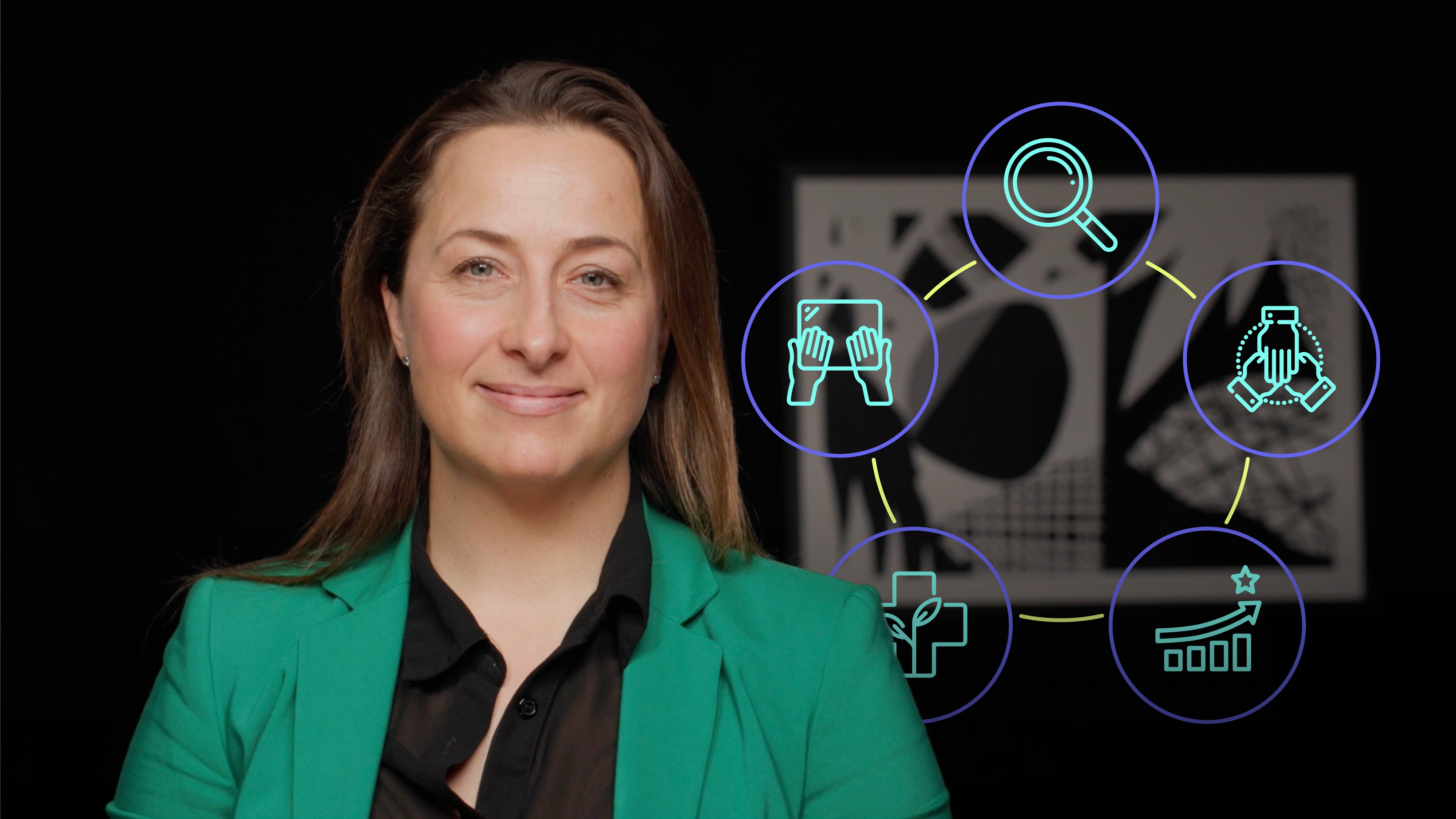
Sustainable Supply Chains Best Practice

Kate Larsen
20 years: Human Rights and Supply Chains
Maintaining supply chain due diligence can seem complicated, cumbersome and downright unmanageable. Luckily, all is not lost. In this video, Kate Larsen rounds off by showing us how supply chain due diligence can be achieved by keeping 5 key words in mind.
Maintaining supply chain due diligence can seem complicated, cumbersome and downright unmanageable. Luckily, all is not lost. In this video, Kate Larsen rounds off by showing us how supply chain due diligence can be achieved by keeping 5 key words in mind.
Subscribe to watch
Access this and all of the content on our platform by signing up for a 7-day free trial.

Sustainable Supply Chains Best Practice
12 mins 51 secs
Key learning objectives:
Identify the 5 key words for maintaining supply chain due diligence
Understand what each word means in depth
Overview:
There are many new reasons why ESG in supply chains is such an important part of ESG, especially the outsourcing and globalisation movements. New laws demand many of them when assessing the ESG performance of a company, to ensure future risks are factored in and opportunities are taken advantage of.
Subscribe to watch
Access this and all of the content on our platform by signing up for a 7-day free trial.
What does investigation mean in this context?
Investigation means assessment is needed to identify priority hotspots and then across entire supply chains. For decades, major brands have run supply chain social compliance social audits of labour and safety conditions at global suppliers. However, to assess labour rights properly can be tricky, as nobody wants to admit to labour abuse. Likewise, it can be expensive to engage skilled ethical auditors and provide them with enough time to find out the truth, and to interview enough workers. Good audits can cost thousands of dollars, which can get expensive when across hundreds or thousands of sites.
What does collaboration mean in this context?
Collaboration asks how to streamline and reduce audits, but also improve other monitoring and supplier and worker training together.
We’ve seen thousands of companies collaborate on supply chain ESG standards such as the Ethical Trading Initiative (led by UK retailers), the Fair Labor Association (initially led by US sporting brands) and the Responsible Business Alliance (led by the tech industry).
What does incentivisation mean in this context?
Supply chain ESG cannot be improved unless companies improve their own purchasing practices. That’s why we need incentivisation and reward. We must consider executive leadership incentive systems in companies. Ratings of companies have started to rank how they are improving governance of supply chain human rights management. This is in terms of how executives are incentivised and even compensated for more ethical buying from supply chains.
What does remediation mean in this context?
The point of incentivisation is to reward suppliers who deliver remediation, or already provide decent work, safety and environmental conditions. There are always some improvements needed, even if more in some suppliers than others, so due diligence on environmental and social in supply chains increasingly is about tracking remediation.
What does transparency mean in this context?
Companies are increasingly expected to be transparent by publicly reporting on their websites about the actual negative environmental and social violation risks they find or that might exist in their global supply chains.
Subscribe to watch
Access this and all of the content on our platform by signing up for a 7-day free trial.

Kate Larsen
There are no available Videos from "Kate Larsen"



























